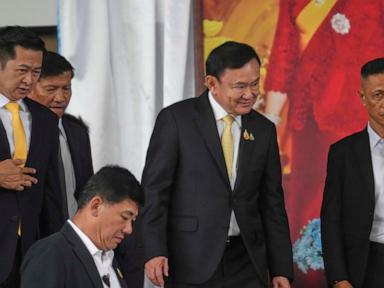Former Thai Prime Minister Thaksin Shinawatra announced his acquittal on royal defamation charges following a court ruling on Friday. The verdict was confirmed by his lawyer, although the Bangkok Criminal Court has yet to issue an official statement regarding the case.
Details of the Case
The law pertaining to royal defamation, known as lese majeste, is one of the strictest globally, carrying penalties of three to 15 years in prison. This legislation has increasingly been employed in Thailand to silence government critics. Thaksin was initially indicted last year, and he secured his release on bail with a bond set at 500,000 baht (approximately $13,000), which included a stipulation that he could not leave the country without court approval. His passport was seized as part of the conditions of his bail.
Thaksin’s legal troubles stemmed from remarks he made to journalists during a trip to South Korea a year prior to his indictment. Although the case was not pursued at that time due to his exile, the legal process initiated following his return to Thailand has drawn significant attention.
Political Background
Thaksin’s opponents, largely from royalist factions, have accused him of various offenses including corruption and abuse of power. They have also alleged he showed disrespect towards King Bhumibol Adulyadej, who passed away in 2016. Since his return to Thailand, Thaksin has maintained a high public profile, traveling across the country to make appearances and share political insights that challenge the conservative establishment responsible for his ousting in 2006.
The former Prime Minister’s acquittal may have implications for Thailand’s political landscape, particularly as he continues to engage with the public and participate in the political discourse. As the situation develops, the reactions from both his supporters and detractors will likely shape the ongoing narrative surrounding his political legacy and the sensitive issue of royal defamation laws in Thailand.





































































